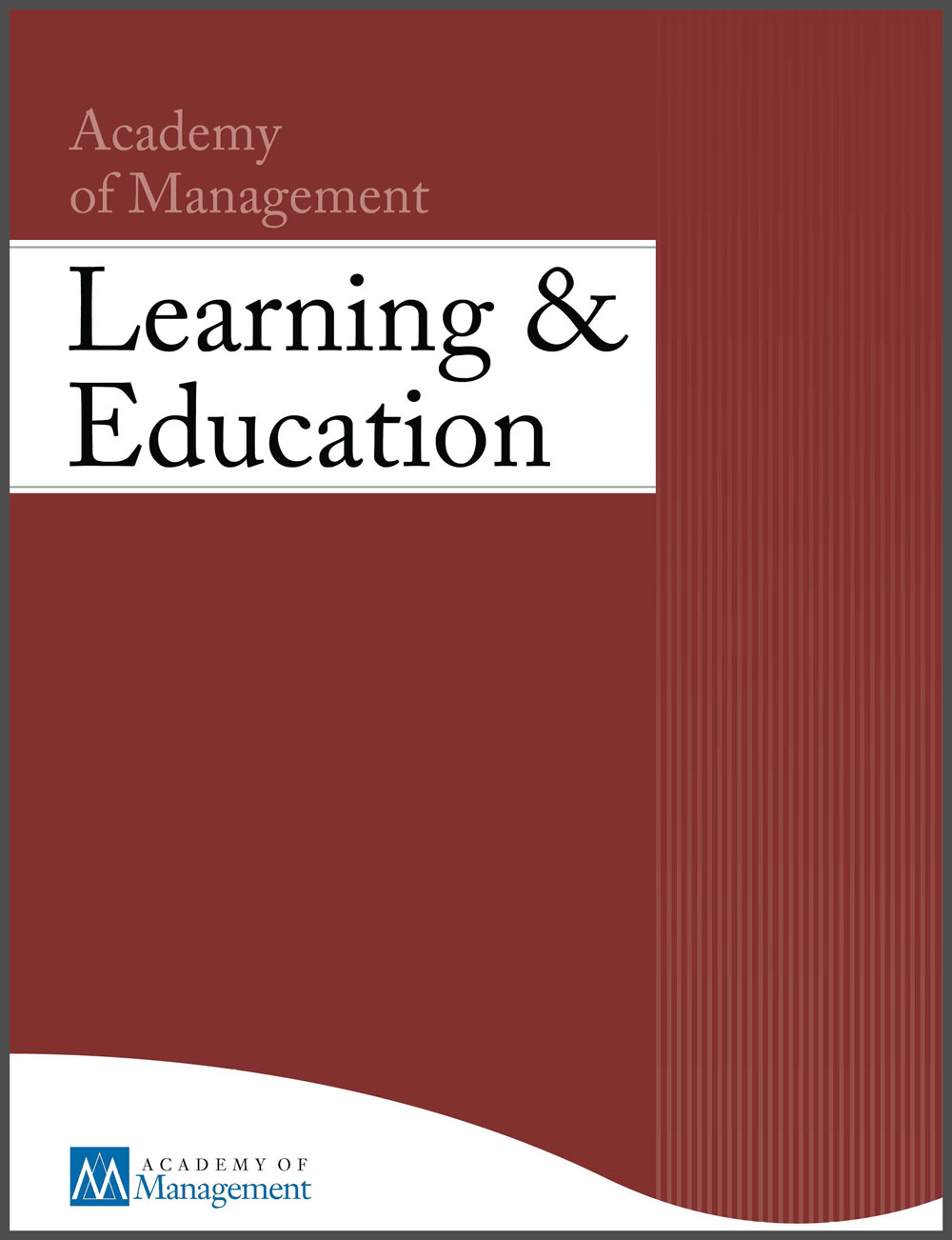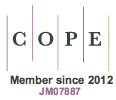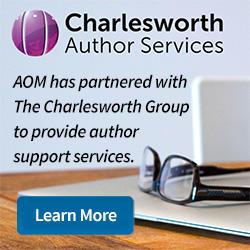Academy of Management Learning & Education
Published quarterly in March, June, September, and December
The mission of Academy of Management Learning & Education (AMLE) is to contribute to management learning and education by publishing theory, empirical research, reviews, critiques, and resources that address the processes of management teaching and the learning that results from it. Additionally, AMLE publishes work that addresses important issues in the institutional environment and administration of business schools and their stakeholders. The journal’s emphasis is on the study of management learning and education in all types of settings—schools and universities as well as businesses and public and non-profit organizations.
Journal Quick Links
Contact the AMLE Editorial Office
For additional information about AMLE, please read the Frequently Asked Questions.
Watch the video "Steps Authors Can Control in the Publication Process" with AMLE EIC Dirk Lindebaum. If you have trouble accessing YouTube content, please use this alternate link.
New Outreach Initiative at AMLE
“Talk to the Editor” online sessions
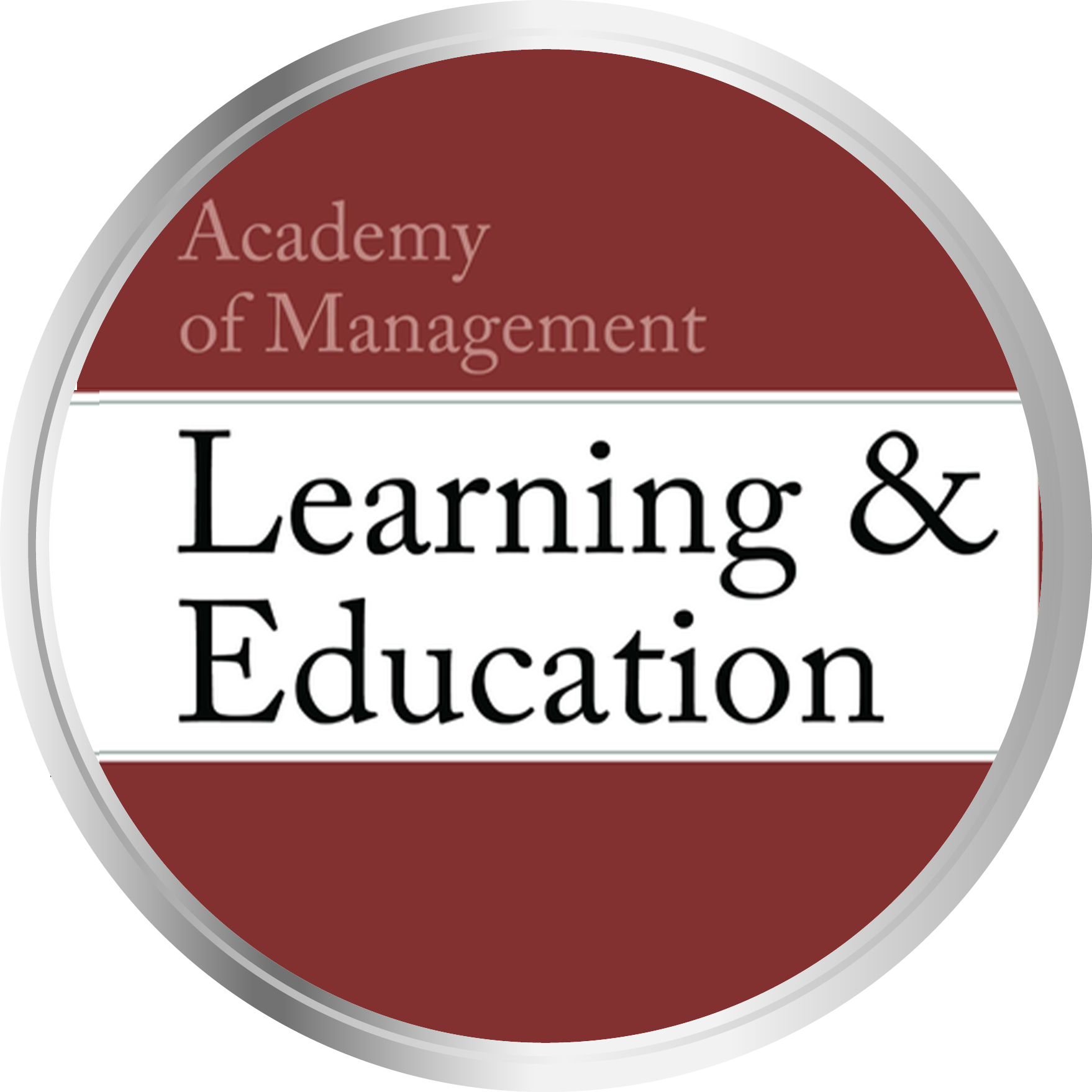 In addition to regular Paper Development Workshops (PDWs) organized across the globe, AMLE is delighted to introduce “Talk to the Editor” online sessions designed as feedback opportunities on full paper drafts for prospective authors
in-between scheduled PDWs. From July 2023 onward, every month, authors of two different papers will have the opportunity to discuss their work in a 30-minute video call with a member of the AMLE editorial team at a time of mutual convenience. To help
maximize authors’ benefits from these sessions, potential papers to be discussed are required to comply with the following expectations:
In addition to regular Paper Development Workshops (PDWs) organized across the globe, AMLE is delighted to introduce “Talk to the Editor” online sessions designed as feedback opportunities on full paper drafts for prospective authors
in-between scheduled PDWs. From July 2023 onward, every month, authors of two different papers will have the opportunity to discuss their work in a 30-minute video call with a member of the AMLE editorial team at a time of mutual convenience. To help
maximize authors’ benefits from these sessions, potential papers to be discussed are required to comply with the following expectations:
1. Only full papers/essays complying with the aim and scope of AMLE are eligible, and all submissions must comply with the AMLE Style Guide for Authors, including the length limit for the submission type. Papers previously rejected by AMLE are not eligible for consideration. Proposals for special issues are not eligible for discussion in these online sessions.
2. Preference will be given to papers scheduled for or already presented at a conference that involves peer-review (including, but not restricted to, AOM, EGOS, BAM, and ANZAM).
3. Where applicable, we strongly encourage that interested authors solicit a “friendly” (but critical) review from colleagues and incorporate any feedback before submitting the paper for the online session.
4. Formal submission to AMLE should take place after the video call to enable authors to maximize their benefits from the feedback session. Note that benefitting from the video call with an editor implies the commitment that the paper will be submitted to AMLE.
Interested authors can submit their requests and papers to Associate Editor Laura Colombo. In your email, you should:
- confirm that your paper addresses point (1) above,
- state which conference your work was accepted for in connection with point (2),
- and if your work has had a “friendly” review (point (3), you should state who conducted this for you.
If the paper is accepted for a discussion meeting, Dr. Colombo will inform authors in which month the online meeting will take place, and which editor is assigned for the discussion. Authors of papers accepted for the feedback sessions are responsible to schedule with the editor a session at a time of mutual convenience. Authors wishing to withdraw the papers for consideration must notify the Associate Editor immediately, so that the slot can be allocated to another paper.
A waiting list will be compiled on a first-come, first-served basis to manage the virtual meetings. AMLE will monitor closely how this NEW initiative is taken up by prospective authors. We reserve the right to decline papers if the interest outgrows resources available. Finally, please note that submitting the paper for consideration at the “Talk to the Editor” online session, and later as an official journal submission to AMLE, does not guarantee publication. All papers will undergo a rigorous double-blind peer-review process at AMLE that informs editorial decision-making.
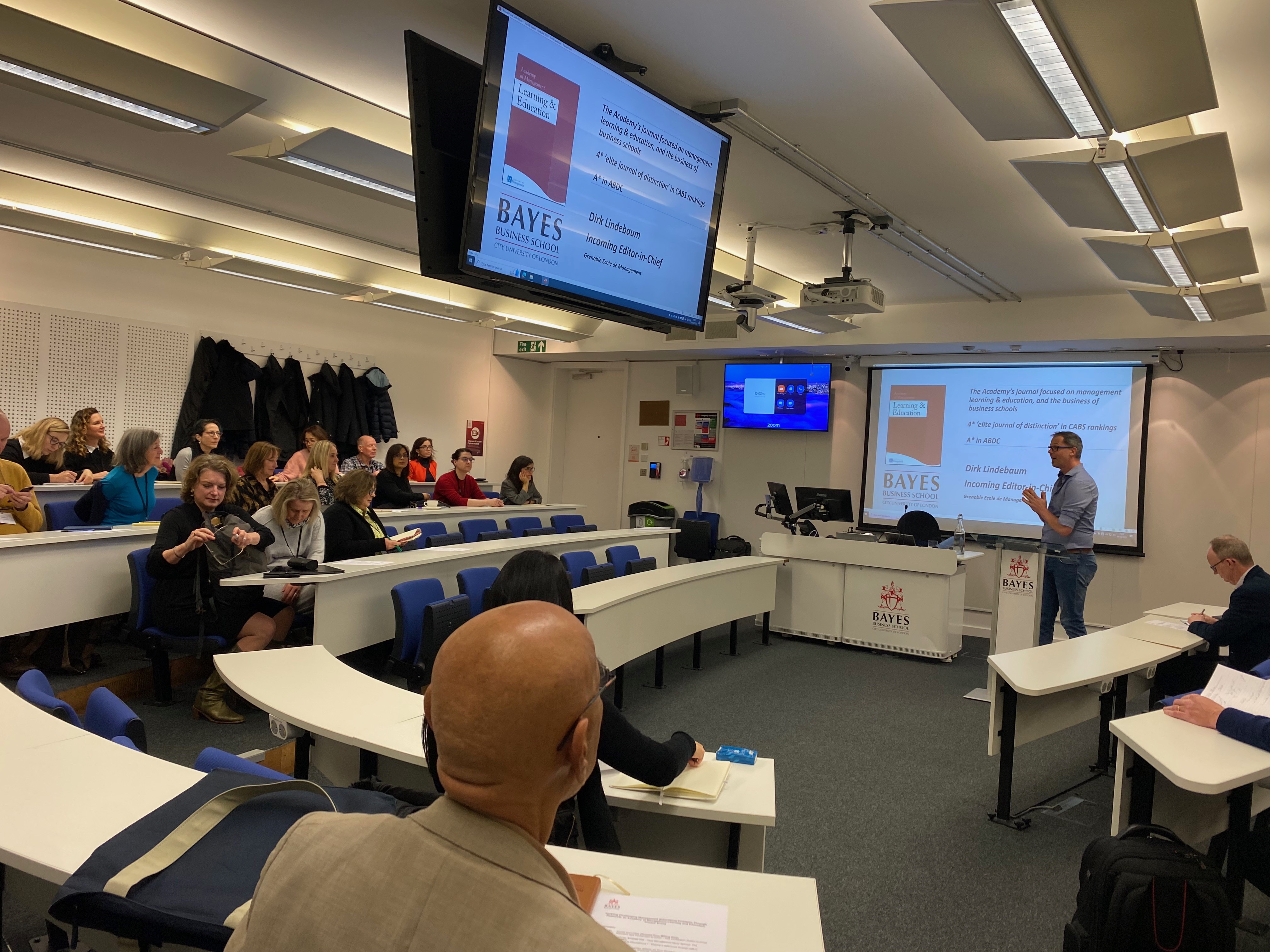
AMLE Impact Event at Bayes Business School (UK)
Watch the keynote speeches from the “TACKLING CHALLENGING MANAGEMENT (EDUCATION) PROBLEMS THROUGH RESEARCH” AMLE Impact event, which showcased pathways through which researcher engagement with wider stakeholders can improve practice at work and/or in management education. The event included keynote speeches by Andrew Hill (FT), Elizabeth Heichler (MIT SMR) and Professor André Spicer contributed a “Dean’s” perspective on impact to the event.
AMLE Calls, Events, and Updates
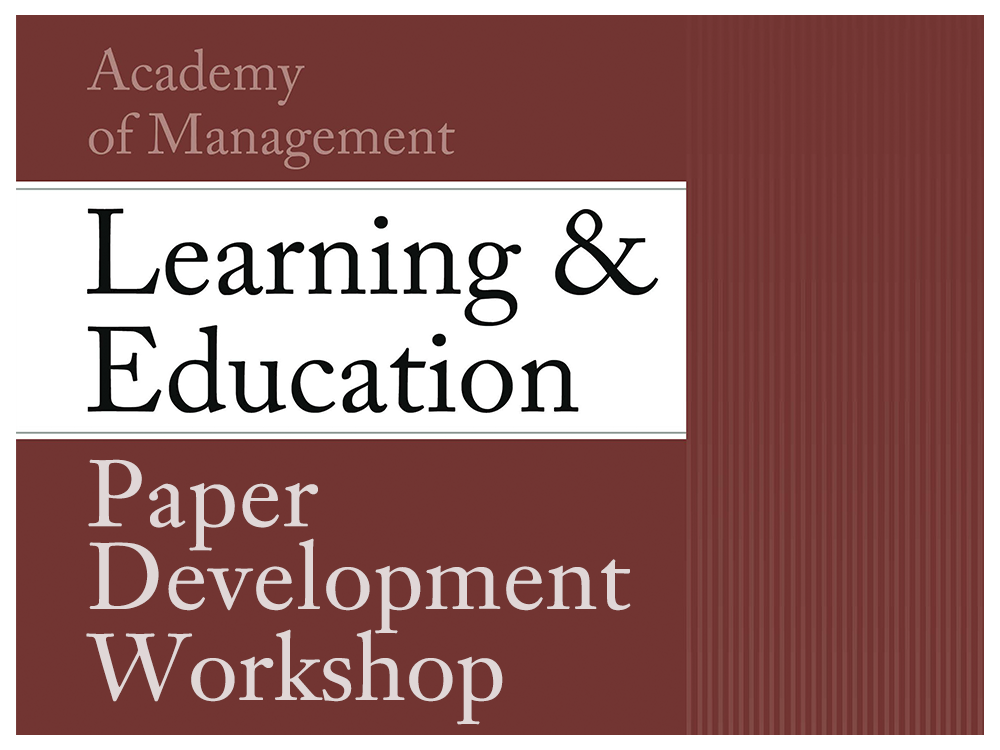
AMLE Paper Development Workshop, Belfast, Northern Ireland
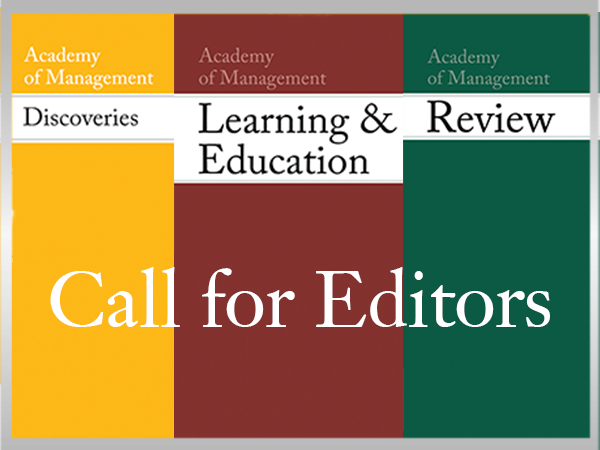
Call for Nominations for Editor: AMD, AMLE, AMR

AMLE Paper Development Workshop, Vilnius, Lithuania
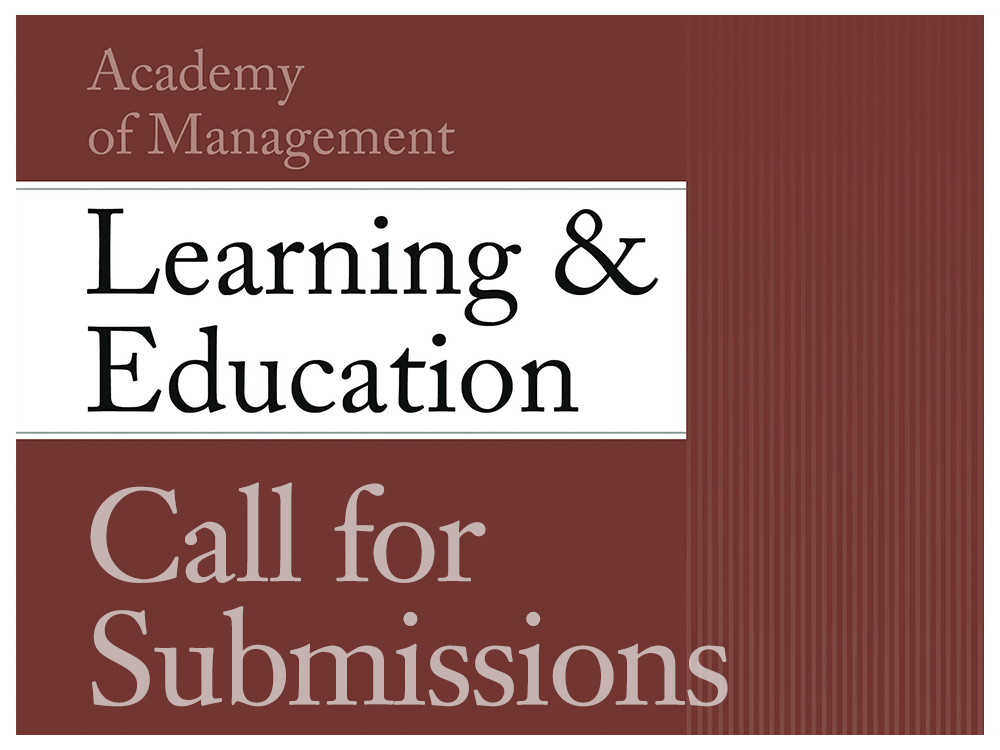
AMLE Call for Special Issue Papers: Management Learning and Education as Drivers of Fundamental Alternative Forms of Organizing

AMLE Paper Development Workshop, Wellington, New Zealand
AOM Journals
- Academy of Management Annals
- Academy of Management Discoveries
- Academy of Management Journal
- Academy of Management Learning & Education
- Academy of Management Perspectives
- Academy of Management Review
- Academy of Management Collections
_____________________________
AOM Publications
_____________________________
Publishing with AOM
5.2 Impact Factor
6.0 Five-Year Impact Factor
1.95 Article Influence Score
© Clarivate 2025
